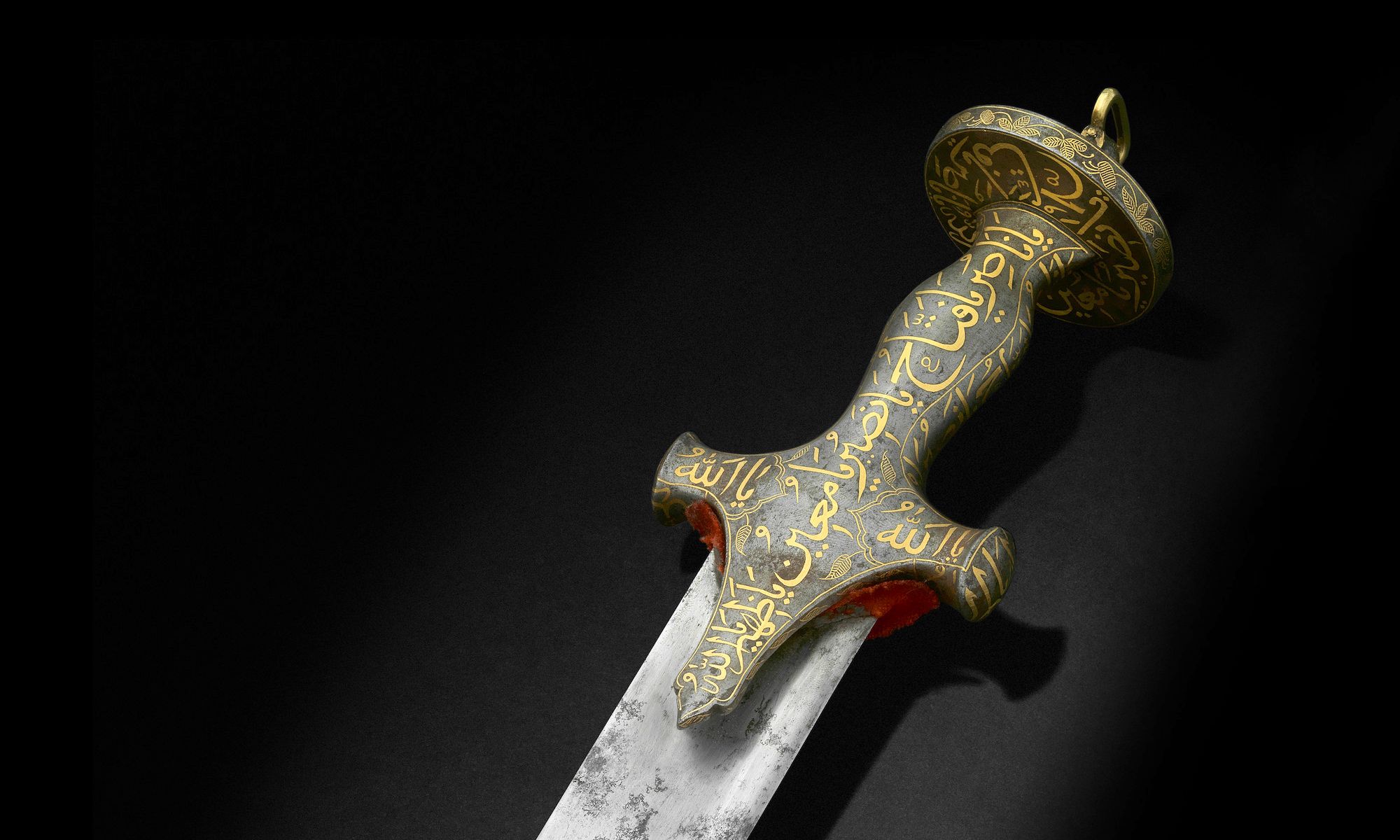Tipu Sultan's bedchamber sword Courtesy Bonhams
An 18th-century Indian sword looted by British troops in 1799 fetched ₤14.1m (including fees) at a Bonhams auction in London on Tuesday (23 May)—a price Bonhams said is an auction record for an Islamic and Indian object.
The one-metre-long sword, its ornate hilt inlaid with gold calligraphy, belonged to Tipu Sultan (1751-1799). Also known as the Tiger of Mysore, he was the Muslim ruler of a kingdom in southern India and waged several battles against the East India Company.
Tipu Sultan's bedchamber sword and its scabbard Courtesy Bonhams
Created by Mughul swordsmiths and known as the Bedchamber Sword, the weapon was taken from Tipu Sultan’s palace at Seringapatam by troops of the East India Company who had defeated his army. Tipu Sultan was killed in the battle.
The sword was presented as a trophy to Major General David Baird by the victorious British army “as a token of their high esteem of his courage and conduct in the assault which he commanded and in which Tipu Sultan was slain”, as an inscription added to the sword’s steel blade states. It remained in Baird’s family until 2003, when it was auctioned at Dix Noonan Webb (now Noonans) in London for ₤150,000.
Inscription on the blade of Tipu Sultan's bedchamber sword Courtesy Bonhams
“The sword has an extraordinary history, an astonishing provenance and unrivalled craftsmanship,” says Nima Sagharchi, Bonhams head of Islamic and Indian art. “It was no surprise it was so hotly contested between two phone bidders and a bidder in the room.”
Bonhams declined to give any information about the winning bidder.
In 2021, the UK government issued a temporary export ban on a tiger’s head finial from Tipu Sultan’s throne, looted after the same defeat, describing it as “an important symbolic object in Anglo-Indian history in the last years of the 18th century”.
The move was criticised at the time by commentators who pointed out that the tiger’s head—like the sword—entered Britain as war loot.

